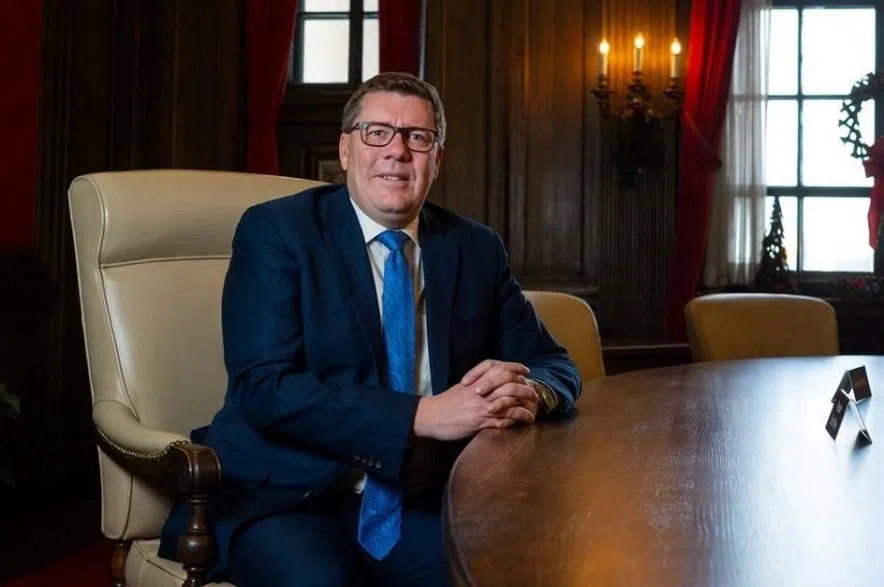REGINA — The Saskatchewan government is promising big-ticket spending on health, education and communities along with no tax hikes and a $273-million deficit.
Finance Minister Donna Harpauer introduced the 2024-25 budget Wednesday, saying that with a growing population and a strong export-focused resource sector, now is the time to invest.
“I would have loved to have ended my last budget as balanced and able to do a tax reduction,” Harpauer told reporters before introducing the document in the house.
“However, it is the budget I am comfortable with, because I do think the premier decided to prioritize in substantive increases.
“It’s the right thing to do.”
This is Harpauer’s last year in politics before she retires and the last budget from Premier Scott Moe’s Saskatchewan Party government before a fall election.
The budget promises more than $1 billion in additional spending in core areas, including to address classroom sizes and supports for learning, to shorten surgical wait lists and $340 million in its revenue sharing program with municipalities.
Total spending for the budget is pegged at just over $20 billion, and the debt is expected to rise to $34 billion by spring 2025.
Along with the deficit in the 2024-25 budget, there is also more red ink in the current budget.
The projected deficit for the fiscal year ending in March is expected to almost double to $483 million.
Harpauer defended the deficit budgeting.
She said Saskatchewan has the second lowest net-debt-to-GDP ratio in the country, and the province needs to keep pace with a growing economy and rising population.
The Opposition NDP said the budget is another exercise in bungled money management and missed opportunities from a government that can’t be trusted to keep its word.
NDP Leader Carla Beck said the Saskatchewan Party made promises before the 2016 election, then made cuts.
She said the budget offers no fuel tax relief for commuters and doesn’t bring forward innovation to transform the health-care system.
“This province used to be a nation leader in health care,” Beck told reporters. “If there was ever a time to pop the hood on our health system and repair it from the ground up, this budget would have been it.”
Beck said it’s not always about spending more money, but how it’s managed. The province is spending millions more on contract nurses and overtime, when it could work with employees to find other solutions, she said.
Harpauer said life in Saskatchewan remains good, with residents enjoying one of the most affordable places to live in Canada while paying lower income taxes than in other jurisdictions.
She said residents will also save on the consumer carbon tax on natural gas, which the province is refusing to collect over a dispute with Ottawa.
Much of the spending — including new money for schools — was spelled out or alluded to in government announcements leading up to the budget.
Budget day came with an added twist of labour disruption.
Teachers across Saskatchewan walked off the job for the day to draw attention to an impasse in contract bargaining with the province.
Teachers held rallies during the day, with some outside the legislature shouting, “Support education!” Others held up placards urging the government to stop stalling in negotiations.
The teachers want issues including classroom sizes and additional supports to be part of the next collective agreement, but Moe’s government has refused.
Instead, the government has promised millions of dollars in additional spending to tackle those issues outside the collective agreement, starting with the budget.
The budget hikes education spending by $248 million to $3.3 billion. There is also $46 million more for classroom supports.
The Saskatchewan Teachers’ Federation said the increases don’t meet the needs of enrolment growth.
“Since the premier made the unusual move of announcing education funding two weeks before budget day, we have had time to dig into the numbers,” federation president Samantha Becotte said in a news release.
“Instead of showing a real commitment to improve student learning conditions and teacher working conditions, Education Minister Jeremy Cockrill and Premier Scott Moe are making things worse, and that’s tremendously discouraging.”
On the health-care front, funding is to rise by $584 million to $7.6 billion, including more money for the Saskatchewan Health Authority.
The money is aimed at increasing capacity in the acute-care system and reducing surgical wait-lists. There is also more money to hire paramedics and do more medical imaging tests. And there is $3.5 million more for breast cancer care and screening procedures.
The Saskatchewan Cancer Agency will see its budget hiked by almost 12 per cent to treat more people and perform more tests.
The province is boosting the money in its revenue-sharing deal with municipalities by $42 million for a total of $340 million. There will also be almost $30 million to help build and improve roads, including networks for heavy truck traffic.
On the capital spending side, there is $4.4 billion mainly for the core areas of schools, health care and communities.
The government is not introducing any new taxes or boosting existing levies.
The small business tax rate was to double to two per cent this summer, and that has been put on hold.
Jeremy Simes, The Canadian Press











